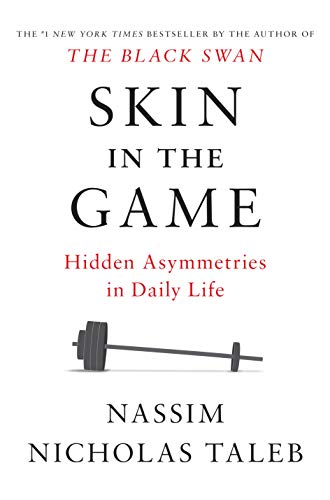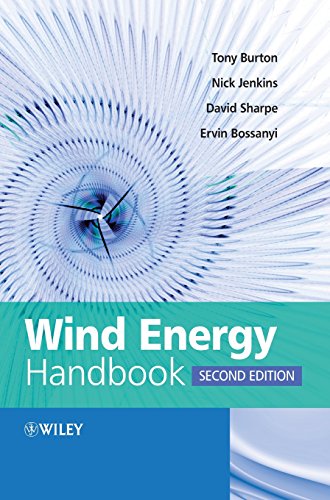(Part 3) Top products from r/energy
We found 24 product mentions on r/energy. We ranked the 161 resulting products by number of redditors who mentioned them. Here are the products ranked 41-60. You can also go back to the previous section.
41. The Radiance of France: Nuclear Power and National Identity after World War II (Inside Technology)
Sentiment score: 0
Number of reviews: 1
Used Book in Good Condition
 Show Reddit reviews
Show Reddit reviews42. Energy in Nature and Society: General Energetics of Complex Systems (The MIT Press)
Sentiment score: 0
Number of reviews: 1
 Show Reddit reviews
Show Reddit reviews43. Thirst for Power: Energy, Water, and Human Survival
Sentiment score: 1
Number of reviews: 1
Yale University Press
 Show Reddit reviews
Show Reddit reviews44. Reliability Evaluation of Power Systems
Sentiment score: 0
Number of reviews: 1
 Show Reddit reviews
Show Reddit reviews45. Why Your World Is About to Get a Whole Lot Smaller
Sentiment score: 1
Number of reviews: 1
 Show Reddit reviews
Show Reddit reviews46. The Curve of Binding Energy: A Journey into the Awesome and Alarming World of Theodore B. Taylor
Sentiment score: -1
Number of reviews: 1
 Show Reddit reviews
Show Reddit reviews47. Aeiusny Portable Generator, 155Wh 42000mAh Power Inverter Battery, UPS Battery Backup for Camping, Emergency, Traveling 110V AC Outlet,3DC 12V,3USB Ports (S360-1)
Sentiment score: 0
Number of reviews: 1
 Show Reddit reviews
Show Reddit reviews48. The Deep Hot Biosphere: The Myth Of Fossil Fuels
Sentiment score: 0
Number of reviews: 1
 Show Reddit reviews
Show Reddit reviews49. Energy for Future Presidents: The Science Behind the Headlines
Sentiment score: 1
Number of reviews: 1
 Show Reddit reviews
Show Reddit reviews50. Global Energy: Issues, Potentials, and Policy Implications
Sentiment score: 0
Number of reviews: 1
 Show Reddit reviews
Show Reddit reviews51. Stone Age Economics (Routledge Classic Ethnographies)
Sentiment score: 1
Number of reviews: 1
Used Book in Good Condition
 Show Reddit reviews
Show Reddit reviews52. Skin in the Game: Hidden Asymmetries in Daily Life
Sentiment score: 1
Number of reviews: 1
 Show Reddit reviews
Show Reddit reviews54. Wind Energy Explained: Theory, Design and Application
Sentiment score: 1
Number of reviews: 1
 Show Reddit reviews
Show Reddit reviews55. Fundamentals of Physics, Volume 1 (Chapters 1 - 20)
Sentiment score: 0
Number of reviews: 1
 Show Reddit reviews
Show Reddit reviews56. The Power Surge: Energy, Opportunity, and the Battle for America's Future
Sentiment score: 1
Number of reviews: 1
 Show Reddit reviews
Show Reddit reviews




Their second slide states their design has a greater cross surface area. This is not how it works. The reason area matters is because of this equation:
Power = (1/2) x (air density) x (area) x (power coefficient) x (wind velocity)^3
The area in that equation is dependent on the length of the blades. Not on how much of the circle is covered by blades. So if you have a design with a 50 m long blade, the cross sectional area will be the same regardless of whether your turbine design uses one blade or 15 blades. What changes is the power coefficient.
What they should say is that their design has a higher solidity.
There's a fair bit of aerodynamics at play here. But the maths shows that optimial efficiency (the power coefficient in the above equation) is achieved with three blades. As you increase the number of blades (thereby increasing the solidity) beyond three blades, the maximum power coefficient drops.
With that said, these types of turbines do already exist, mostly in the form of wind pumps. They are designed to work in low winds, with lower RPMs but where high torque is required (to pump water). For those uses, a design with high solidity works. But for use in high wind scenarios where the purpose is to turn a generator, the three blade design works best.
The other problem with more blades is that you are increasing the costs dramatically. The utility scale turbines discussed in the OP are very tall turbines with long blades. The additional costs involved in increasing the number of blades would be very high. Firstly the extra blades would cost money, then the hub design would be more complex, and the hub and nacelle must be stronger/heavier to support the extra blades, this means the tower must be stronger/heavier to support the extra blades and heavier nacelle and hub, and finally, this results in the requirement for stronger foundations. And all this extra equipment also means higher transportation costs.
Also, in the slides, they state that the three blade designs are fixed in their position and can't turn to face the wind. This is simply not true. All utility scale turbines can and do rotate to face the wind direction. It may be the case that small scale turbines do not turn into the wind, but I'm not familiar with turbines of that scale.
So though it's possible that high blade count turbines have applications at which they excel (wind pumps, possibly with small scale generators), utility scale electricity generation is not one of them.
Source: Wind Energy Handbook
Well, you're certainly asking someone else to do your homework with that post.
There's all sorts of primitive tribal societies just like there's all sorts of modern societies (though they differ in different regards). An interesting classic is Stone Age Economics but there's an immense amount of anthropological literature out there and like modern economic theory there are several schools of thought. In the end I've noticed most peoples views on this matter aren't due so much to any kind of research as they are to do with whether they prefer the myth of progress or the myth of cyclic return.
I think this book is a good high level overview. It’s not too technical.
Thirst for Power: Energy, Water, and Human Survival https://www.amazon.com/dp/0300212461/ref=cm_sw_r_cp_api_i_8aK7AbWP7N9PF
As for ‘finding a job in renewable energy’ I think it really depends on what you’re like to do. Build things? Construction science, civil eng or elec eng. Design things? Mech or elec or civil eng. Research? Chemistry / chem eng or elec Eng.
I see lots of math in your future.
I just read Energy for Future Presidents. Despite the somewhat odd format it was one of the best thought out books out there.
While I didn't expect it from the title, Green Metropolis is another book which should be required reading on energy.
I'm not finding any good links that really jump out like reading the first few chapters would, the amazon reviews do it justice though.
https://www.amazon.com/Skin-Game-Hidden-Asymmetries-Daily/dp/042528462X
A book that I really enjoyed about the effects of peak oil on society is called "Why Your World Is About to Get a Whole Lot Smaller" by Jeff Rubin. If you are interested in the subject give it a read.
I ended up picking this up and it is a great read.
http://www.amazon.com/The-Power-Surge-Opportunity-Americas/dp/0199986169
> Really, how does solar satisfy any load conditions at night?
Here you go
Or at least a bit of familiarity with Valcav Smil's work.
A good recommendation for a nuts n bolts read is Energy in Nature and Society: General Energetics of Complex Systems. Good stuff, but it is a (fairly lightweight) textbook.
> In France, nuclear is considered as the pride of sovereignty recaptured
So it seems. I glossed over the book The Radiance of France: Nuclear Power and National Identity after World War II (Inside Technology) where the theme is exactly that. It is a fun read, some insight into EDF vs CEA disputes etc. Though I didn't dive in full (was searching for specifics).
You can buy it from Amazon India
Edit: that's the paper copy (hardback or paperback). I don't know which e-book retailers retail in India, so I can't advise where to look if you want an e-book. If you're at a university, check via your library.
http://www.amazon.com/gp/aw/d/0199759464 here it is... let me know if you have questions
-nuclear engineer
http://www.amazon.com/Fundamentals-Physics-Volume-Chapters-20/dp/047004473X/ref=sr_1_4?ie=UTF8&qid=1334709755&sr=8-4
volumes 1&2
It works.
"Confession of an Economic Hitman"(https://www.amazon.com/Confessions-Economic-Hit-John-Perkins/dp/0452287081)"
http://www.amazon.com/exec/obidos/ASIN/0387952535/greaterthingsboo
Where is the argument?
For the curious, consider (re-)reading https://www.amazon.com/Curve-Binding-Energy-Alarming-Theodore/dp/0374515980
All I've got for you a very dense textbook that my co-worker lent me:
Reliability Evaluation of Power Systems by Roy Billinton and Ronald N. Allan. Definitely not light reading, but my co-worker told me it is basically the Bible when it comes measuring, calculating, and understanding the reliability of electric generation, transmission, and distribution, from both an engineering and economic standpoint.
Probably not what you're looking for, but just thought I would throw it out there in case it struck your fancy.
If you get a 12 volt fan it will use about 1 amp, so 8amp hours for all night = 20% of carbatt capacity. Some car batteries will only do that every night for a week before they start to suffer, some will do it for a few months.
This sort of thing looks intresting:
https://www.amazon.com/Station-Portable-Inverter-Generator-42000mAh/dp/B074MN6YG3/
"150 Watthours" lithium Ion battery pack (rather good), "100" Watt solar input , built in 100 watt inverter (that's lowish power but still useful) and usb and 12 volt outputs. cost $160
the specification of the solar input may be questionable, limited to 25 actual watts and nominal 13~14 v level (MC4 connector). That may or may not be compatible with nominal 100 watt, 12v or 18v panel setups.
Then you'd just need a $20 12v fan, and bargain lightweight solar panel deal...
"50W" bendable panel kit for $100 ?
There is a "100W" version for $170 - possibly overkill.
1 kilogram, frameless :
https://www.amazon.com/ALLPOWERS-Bendable-Flexible-Lightweight-Irregular/dp/B013DZWDI0/